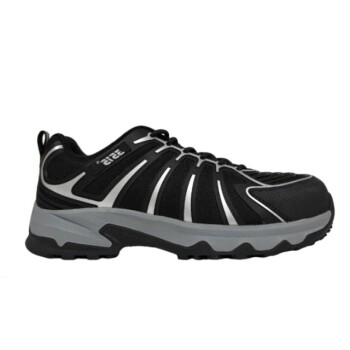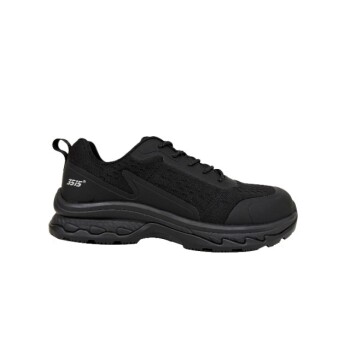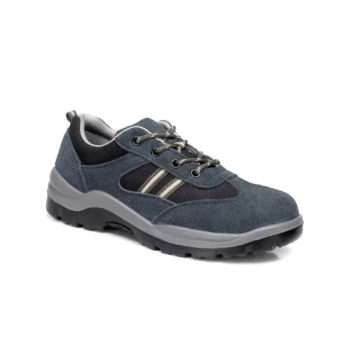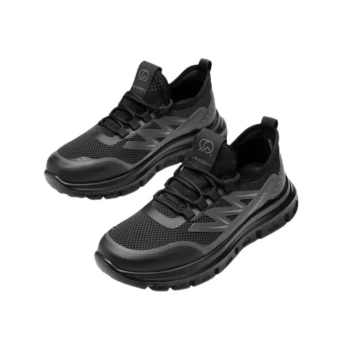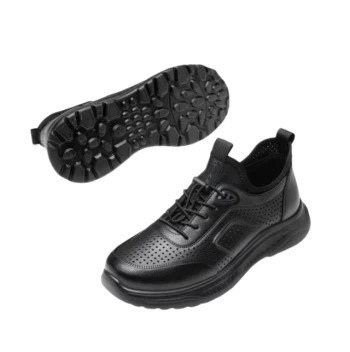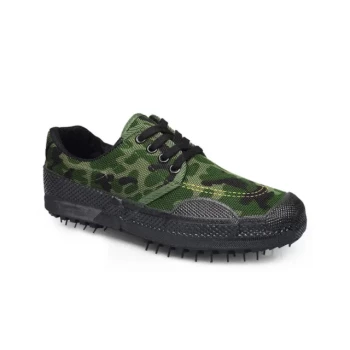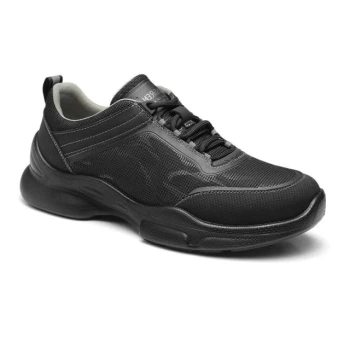The short answer is a fundamental shift in workplace culture. The acceptance of sneakers in the office mirrors a broader move away from rigid, traditional formalities and toward a new definition of professionalism that values comfort, individual expression, and performance over a specific dress code.
It's not just about footwear; it's about the evolution of what "professional" looks like. The right pair of sneakers is now seen as an intentional style choice that balances modern aesthetics with comfort, proving that great work doesn't depend on wearing hard-soled shoes.
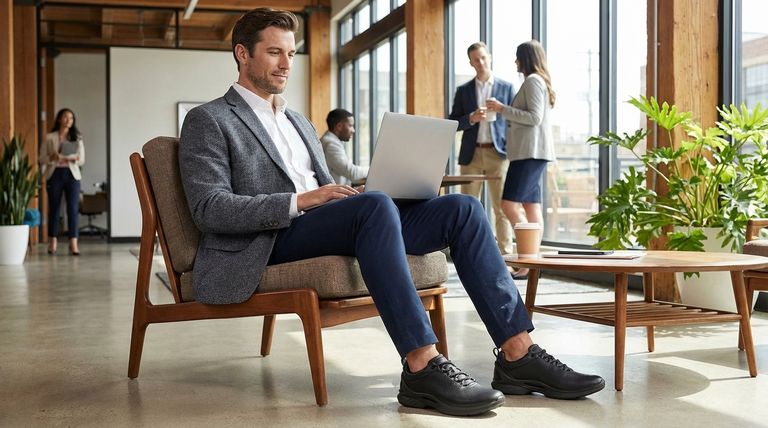
The Cultural Forces Redefining "Office Attire"
The move toward accepting sneakers isn't an isolated trend. It's the result of several powerful shifts in how we work and what we value in a professional environment.
The Influence of Tech and Creative Industries
Modern companies, particularly in tech and creative fields, pioneered a results-oriented culture.
They demonstrated that innovation and productivity are completely disconnected from traditional corporate uniforms, setting a new standard for office attire across all industries.
A New Emphasis on Individuality
Workplaces increasingly recognize the value of authenticity and personal expression.
Allowing employees to wear sneakers is a simple but effective way to let them showcase their personal style while still looking put-together and professional.
The Primacy of Comfort
There is a growing understanding that physical comfort can directly impact focus, well-being, and productivity.
Companies now acknowledge that comfortable employees are often happier and more engaged, and footwear is a logical starting point.
What a Sneaker Signals in a Professional Setting
Choosing to wear sneakers in the office is a conscious decision that communicates specific, positive messages when done correctly.
A Balance of Style and Practicality
A clean, well-chosen sneaker signals that you are practical and appreciate comfort, but also that you take care in your appearance.
It conveys a modern, effortless confidence that feels current and appropriate for today's business casual environments.
An Intentional, Modern Aesthetic
Wearing a sleek, minimalist sneaker is not a lazy choice; it is a deliberate one.
It shows you are attuned to contemporary style norms and can assemble a look that is both professional and relevant.
Understanding the Unwritten Rules
While sneakers are widely accepted, that acceptance comes with critical caveats. Success depends entirely on context and execution.
Not All Sneakers Are Created Equal
There is a vast difference between a scuffed pair of running shoes and a clean, minimalist leather sneaker.
Office-appropriate sneakers are typically low-profile, made from premium materials like leather or suede, and are kept in pristine condition. The shoes you wear to the gym should never be the shoes you wear to the office.
Context is Everything
The acceptability of sneakers varies dramatically by industry, company culture, and even daily schedule.
A tech startup will have a different baseline than a corporate law firm. If you have an important client-facing meeting, traditional dress shoes may still be the most appropriate choice.
The Importance of the Overall Outfit
Sneakers do not work in isolation. Their success hinges on being paired with an otherwise professional and well-fitting outfit.
Pair them with smart chinos, tailored trousers, or dark-wash denim and a blazer to ensure the overall look reads as "business casual," not just "casual."
How to Choose the Right Sneaker for Your Office
Your choice should align directly with your professional environment and personal brand.
- If your primary focus is navigating a traditional corporate environment: Stick to established dress shoes, as even the cleanest sneaker may not align with a conservative company culture.
- If your primary focus is blending in with a modern "business casual" office: Choose minimalist, clean leather or suede sneakers in neutral colors like white, black, grey, or navy.
- If your primary focus is expressing style in a creative or relaxed field: You have more freedom with color and design, but the sneakers must remain well-maintained and part of a cohesive, intentional outfit.
Ultimately, the right sneaker succeeds when it enhances your professional image, rather than detracting from it.
Summary Table:
| Key Factor | Why It Matters |
|---|---|
| Tech Industry Influence | Pioneered results-oriented cultures, decoupling productivity from formal attire. |
| Emphasis on Individuality | Allows for personal expression while maintaining a professional appearance. |
| Focus on Comfort & Well-being | Recognizes that physical comfort can improve focus and productivity. |
| Modern Aesthetic | A clean, minimalist sneaker signals an intentional and contemporary style choice. |
Ready to supply the perfect professional sneaker for your market?
As a large-scale manufacturer, 3515 produces a comprehensive range of footwear for distributors, brand owners, and bulk clients. Our production capabilities encompass all types of shoes and boots, including the clean, minimalist styles perfect for today's business casual environments.
We can help you meet the growing demand for office-appropriate sneakers with high-quality, stylish options. Contact us today to discuss your bulk sourcing needs and elevate your product line.
Visual Guide
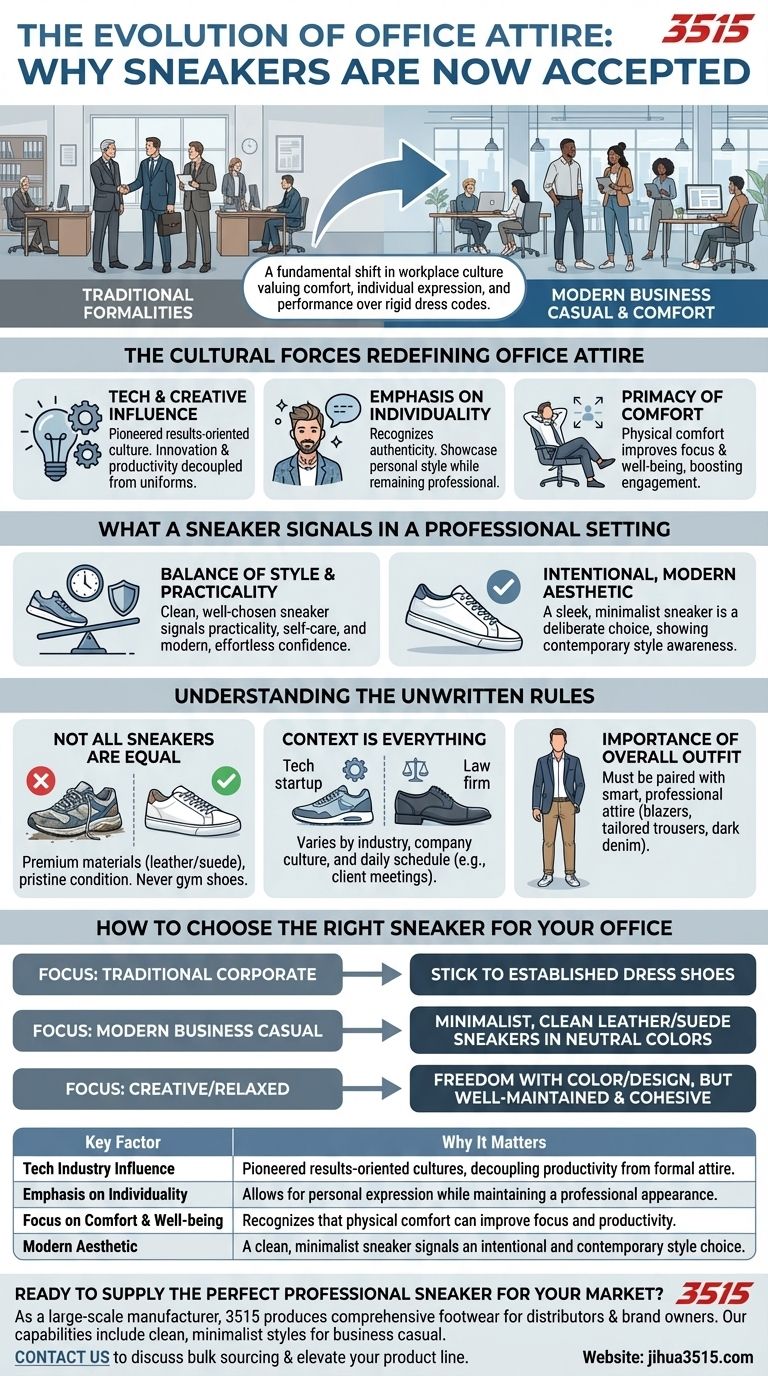
Related Products
- Wholesale Comfortable Business Casual Shoes Custom Manufacturing
- Custom Manufactured Air Cushion Leather Business Shoes for Wholesale
- Durable Rubber-Soled Utility Shoes for Wholesale & Custom Brand Manufacturing
- Wholesale Modern Business Shoes with Dial Closure System for Bulk Orders
- Wholesale Smart Casual Sneakers with Dial Closure | Factory Direct Manufacturing
People Also Ask
- How do insoles affect skate performance? Find the Perfect Balance for Your Style
- Why are piezoelectric polymers such as PVDF essential for smart shoe soles? Powering the Future of Footwear
- What role do Machine Learning (ML) algorithms play in sneaker manufacturing? Boost QC and Precision Production
- What makes Oxford sneakers unique among dress shoes? Discover the Perfect Hybrid for Style & Comfort
- What are the benefits of cupsole skate shoes? Superior Impact Protection for High-Impact Skating
- What are the differences in support between casual shoes and sneakers? Find Your Perfect Fit for Comfort & Stability
- In what scenarios are TPR soles more suitable for sneakers? Ideal for Affordable, Lightweight Casual Wear
- How do biomechanical sensors in smart footwear assist in cardiovascular health? Advanced BCG & SCG Insights








